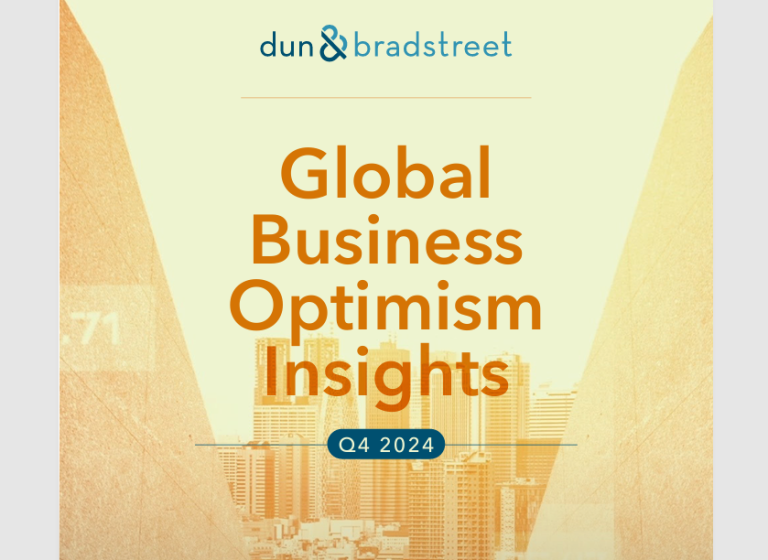Dun & Bradstreet’s latest report reveals a notable 7% rise in global business optimism, marking a continued recovery in the final quarter of 2024. According to the Q4 2024 Global Business Optimism Insights report, fielded in Q3, this surge is largely attributed to the easing of inflation and favourable borrowing conditions worldwide.
The report highlights that nearly four out of five businesses now express greater optimism across key areas such as domestic and export orders, capital spending, and financial risk management. This positive outlook has been supported by the relaxation of financial pressures, adjustments in monetary policy, strengthened regulatory frameworks, and a growing commitment to sustainability initiatives.
In the U.S., business optimism saw an impressive 9% increase, driven by lower inflation and expectations of further interest rate cuts. Similar trends were observed in the U.K. and Spain, where central banks initiated monetary easing measures, resulting in a 13% and 9% increase in optimism, respectively. Emerging markets also showed signs of improvement, with Argentina experiencing a boost in confidence due to easing inflation, while India benefited from strong domestic demand.
Neeraj Sahai, President of Dun & Bradstreet International, cautioned that geopolitical uncertainties remain a challenge despite the overall rise in optimism. “While inflation has moderated and global business sentiment is improving, industry-specific regulatory risks and stringent data requirements remain top concerns for a third of respondents. As a result, businesses are increasingly exploring ways to diversify their supply chains to manage these regulatory challenges,” Sahai explained.
Key Index Findings
Dun & Bradstreet’s report identifies significant improvements across five core indices:
- Global Business Optimism Index:
This index saw a 7.3% increase in Q4 2024, with 75% of businesses, particularly smaller firms, showing increased confidence in sales and domestic and export orders. Notably, optimism in the real estate and utilities sectors rose by 12.5% and 10.4%, respectively. - Global Supply Chain Continuity Index:
Improved by 6.8%, as businesses have increasingly turned to nearshoring, alternative routes, and local supplies to ease supply chain pressures. In the U.S., Switzerland, and Spain, around 25% of firms are diversifying their supply chains to better manage regulatory risks. - Global Business Financial Confidence Index:
A 6.3% rise in confidence reflects expectations of better financial conditions and reduced borrowing costs, with significant improvements noted in the U.S. and South Korea, where optimism surged by 5.2% and 11.2%, respectively. - Global Business Investment Confidence Index:
This index grew by 3.6%, signalling rising optimism for capital investments as central banks adopt more accommodative monetary policies. - Global Business ESG Index:
Increased by 6.1%, driven by companies’ efforts to comply with stricter environmental regulations such as the EU’s Carbon Border Adjustment Mechanism. About 29% of businesses cite these regulations as major concerns, with nearly one in four conducting risk assessments to meet compliance requirements.
Arun Singh, Global Chief Economist at Dun & Bradstreet, remarked that falling borrowing costs are bolstering confidence, resulting in stronger sales, exports, and reduced financial risks, which are fuelling capital investment and easing supply chain pressures. View the full report here.


